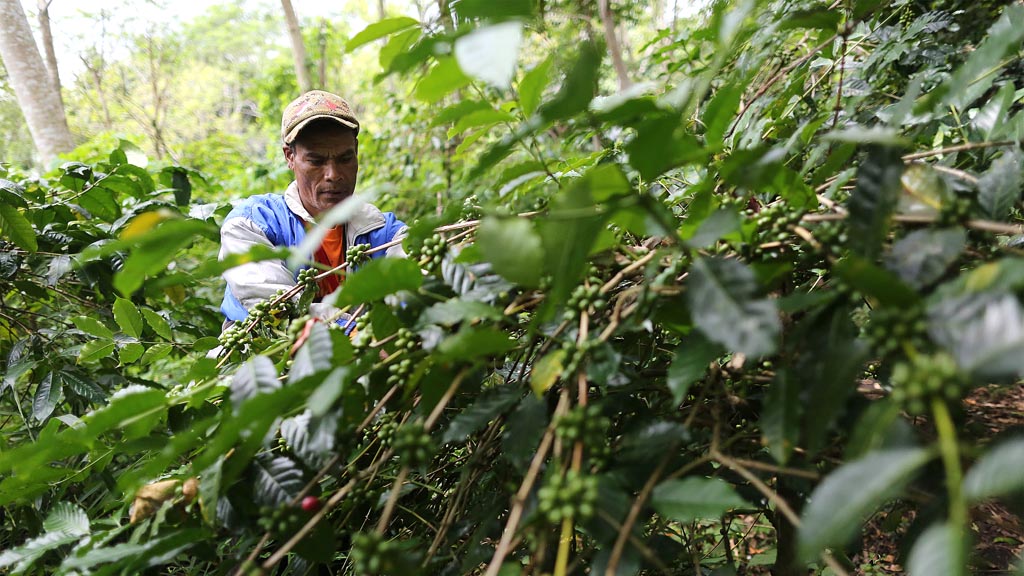Coffee farmers in Flores, Indonesia, are increasingly facing challenges due to climate change, including unpredictable rainfall, prolonged droughts, and increased pests and diseases. These issues are further exacerbated by soil degradation, reduction of agricultural land, and shifting social dynamics, such as youth migration and changing gender roles within farming communities.
To address these challenges, the Ecosystem-Based Adaptation-Enhanced Climate Field School (EECCLiRe) project was implemented between 2023 and 2025 in Ruteng, Manggarai Regency, and Bajawa, Ngada Regency. The project aimed to integrate ecosystem-based adaptation (EbA) principles, agroforestry, and climate information into climate field schools for coffee farmers. By combining traditional ecological knowledge with modern scientific approaches, the project sought to develop locally relevant and effective adaptation strategies.
One significant finding from the project was the importance of integrating diverse knowledge systems. Traditional practices, such as sustainable soil fertility management and the use of shade trees, have been passed down through generations and remain valuable. However, climate change has rendered some traditional methods less effective, necessitating the incorporation of scientific knowledge, such as weather forecasting and pest management techniques. This blended approach has empowered farmers to make informed decisions, enhancing their resilience to climate impacts.
Despite these advancements, several challenges persist. Tensions between traditional beliefs and new practices can hinder adoption. For instance, some farmers are reluctant to implement coffee tree rejuvenation techniques due to spiritual beliefs associated with harming the tree's spirit. Economic constraints also play a role; the costs of necessary tools and the potential income loss during the transition period can be prohibitive. Moreover, limited access to technology and infrastructure, such as smartphones and stable internet connections, restricts the dissemination of crucial climate information.
Gender dynamics and generational differences further influence the adoption of new practices. Women, often more open to new knowledge, may lack decision-making power in farming activities. Additionally, younger individuals, though more receptive to modern techniques, are increasingly seeking livelihoods outside of agriculture, posing a risk to the continuity of coffee farming traditions.
To ensure the effectiveness of ecosystem-based adaptation and prevent maladaptation, it is essential to:
- Engage farmers directly in the design and implementation of adaptation projects, acknowledging and integrating diverse knowledge systems.
- Identify and address behavioral, financial, and infrastructural barriers to adopting new practices.
- Provide hands-on training, demonstrations, and continuous support to facilitate the transition to resilient farming methods.
- Implement gender-sensitive and youth-focused approaches to encourage inclusive participation and leadership in adaptation efforts.
By embracing a holistic approach that respects cultural values and leverages both traditional and scientific knowledge, coffee farmers in Flores can enhance their resilience to climate change, ensuring the sustainability of their livelihoods and the preservation of their rich agricultural heritage.
Read More






 Thursday, 25-12-25
Thursday, 25-12-25







